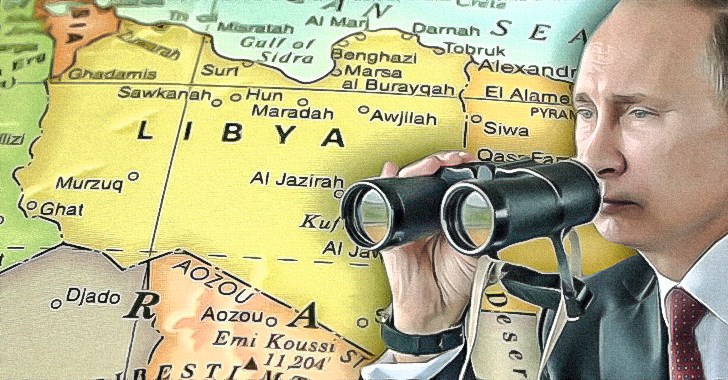RUSSIA EYES LIBYA AS PUTIN EXPANDS PRESENCE ACROSS THE MIDDLE EAST

Article
via The Anti-Media by Darius Shahtahmasebi
Russia
has had a busy month regarding its affairs in the Middle East. On
March 9, Russian President Vladimir Putin met with Israeli Prime
Minister Benjamin Netanyahu. The next day, Putin met with Turkish
President Recep Tayyip Erdogan, and on March 14, Russian Deputy
Minister Mikhail Bogdanov met with Libyan General Khalifa Haftar’s
envoy in Moscow.
Khalifa
Haftar has emerged the most powerful leader in eastern Libya, a
region through which 60 percent of Libya’s oil supply passes.
According
to the Guardian, Russia has also deployed special forces to an
airbase in western Egypt near the border with Libya. The move has
added further concerns in Washington about Moscow’s role in the
war-ravaged nation.
While
testifying to the Senate’s foreign relations committee, the chief
of the Pentagon’s Africa command, General Thomas D Waldhauser,
said, “Russia is trying to exert influence on the ultimate decision
of who and what entity becomes in charge of the government inside
Libya.”
He
accused Russia of “trying to do in Libya what they are doing in
Syria.”
However,
Washington’s criticism of Russia’s support for the Libyan warlord
is somewhat hypocritical considering that even the Guardian admits
the U.S. backed Haftar to overthrow Gaddafi in 2011.
Nevertheless,
according to the Jerusalem Post, E.U. diplomats are worried that
Haftar, with Russian backing, could be successful in taking over much
of Libya.
However,
as Foreign Policy notes:
“Russia
is becoming increasingly involved, trying to fill the void left by
the collapse of the U.N. track and the disinterest of both the Trump
administration and the Europeans. It is unclear what Moscow really
wants in Libya, but it seems to be pursuing a strategy that
acknowledges the de facto partition of the country, promising both
political and military support for Haftar’s battle in the east
while signing contracts for oil and discussing business opportunities
in commodities trading and future construction projects with the
institutions in Tripoli. While there are reports that Russian special
forces may be helping Haftar, there is still no evidence of decisive
Russian military support for the LNA, and it is fair to say that the
Kremlin is diversifying its political investment in the country by
talking to all sides.”
Unsurprisingly,
the U.S. just announced it will keep an unspecified number of ground
troops stationed in Libya for an indefinite period of time.
Libya,
an Iraq-style fiasco that neither the U.S. or the E.U. wants to take
responsibility for, could end up being snatched by Russia as its
newest ally in the Middle East, a membership that includes Iran,
Syria, and Egypt, to name a few.
As
Western influence throughout the region is waning, Russia’s appears
to be growing. America’s failure to provide stability to Libya —
and its decision to destroy the country in the first place — may
ultimately backfire, as warring parties may start to look elsewhere
for security and support. Libya is the latest country out of a number
of various countries who are arguably relying less on the U.S. and
strengthening ties with Russia, instead.



No comments:
Post a Comment
Note: only a member of this blog may post a comment.